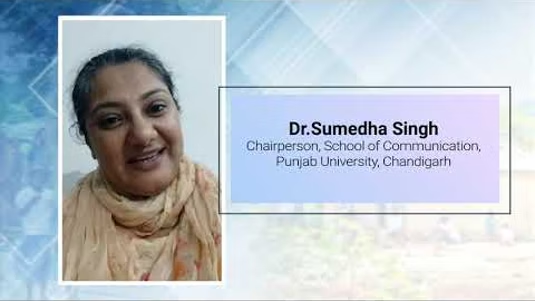Creative Communication, Extension and Community Resource Management for Sustainable Development free videos and free material uploaded by IGNOU Staff .
Block 1: Extension Education and Creative Communication for Sustainable Development
Week-1
Unit 1 - Concept and Principles of Extension
Week-2
Unit 2 - Community Development and Group Processes
Week-3
Unit 3 - Participatory Approaches and Creative Methods: Learning Together
Week-4
Unit 4 - Planning and Developing Extension Programme
Block 2: Community Resources and Sustainable Food Systems: Multi- dimensional Perspectives
Week-5
Unit 5 - Sustainable Food Systems: Moving Towards Food and Nutrition Security for All
Week-6
Unit 6 - Sustainable Livelihood Resources and Indigenous Knowledge
Week-7
Unit 6 - Sustainable Livelihood Resources and Indigenous Knowledge
Week-8
Unit 7 - Sustainable Consumption: towards Achievement of Health and 2030 agenda
Week-9
Unit 8 - Gendered roles, and Women’s Agency in Food Systems
Block 3: Communication for Development
Week-10
Unit 9 - Development Communication in India
Week-11
Unit 10 - Innovative Techniques for Behaviour Change Communication
Week-12
Unit 11 - ICTs for Development Communication
Block 4: Strengthening Capacities: Training, Advocacy and Partnerships
Week-13
Unit 12 - Training and Strengthening Capacities of the Stakeholders in Development
Week-14
Unit 13 - Advocacy for Sustainable Development
Week-15
Unit 14 - Collaborations and Partnerships for Change
This Course involves academic experts at the national and international level. The Experts are from the University of East Anglia, International Crop Research Institute for Semi-Arid and Tropics (ICRISAT), Panjab University, Professional Assistance for Development Action (PRADAN), NNedPro Global Centre for Nutrition and Health, M.S. Swaminathan Research Foundation (MSSRF), and Kalinga Institute of Social Sciences (KISS). They possess a rich repository of community based knowledge of extension approaches as well as the latest approaches to extension, community resource management, and have worked with traditional knowledge systems of existing sustenance practices.
The goal of this Course is to learn about creative extension approaches and communication strategies to address the wellbeing and empowerment of rural and urban communities, especially women and children, by producing and exchanging relevant contextual knowledge and practices.The UN Sustainable Development Goals 2015 provide for specific targets that can be achieved in the next 15 years. The emphasis is on “global partnership” involving collaboration between governments, the Major Groups such as women, children and youth, indigenous peoples, NGOs, local authorities, local communities and several other stakeholders. In the light of globalisation and modernisation, traditional knowledge systems and related resources are eroding among the younger generations, and there needs to be rapid intervention to prevent further loss for ensuring the continuity and sustainability of the economy, its resource base and social fabric.
Using a variety of communication tools and channels can allow messages to shape mass media or interpersonal, small group, or community level campaigns. We need to move beyond traditional training and extension methods to listen to different stakeholders, especially from the communities, build on their knowledge, and thereby make the process both more creative and reciprocal.This Course will equip learners with knowledge and skills on the latest creative tools in extension, training and advocacy, drawing on the community resources in indigenous communities. It is therefore important to reach a wider audience of students, academicians, frontline workers, NGO workers and women in rural and tribal belts of India. The will further help learners to help these communities in making informed choices that would go a long way in improving sustainability, and build a strong research base.

- 0 Reviews
- 0 Students
- 156 Courses

Write a public review